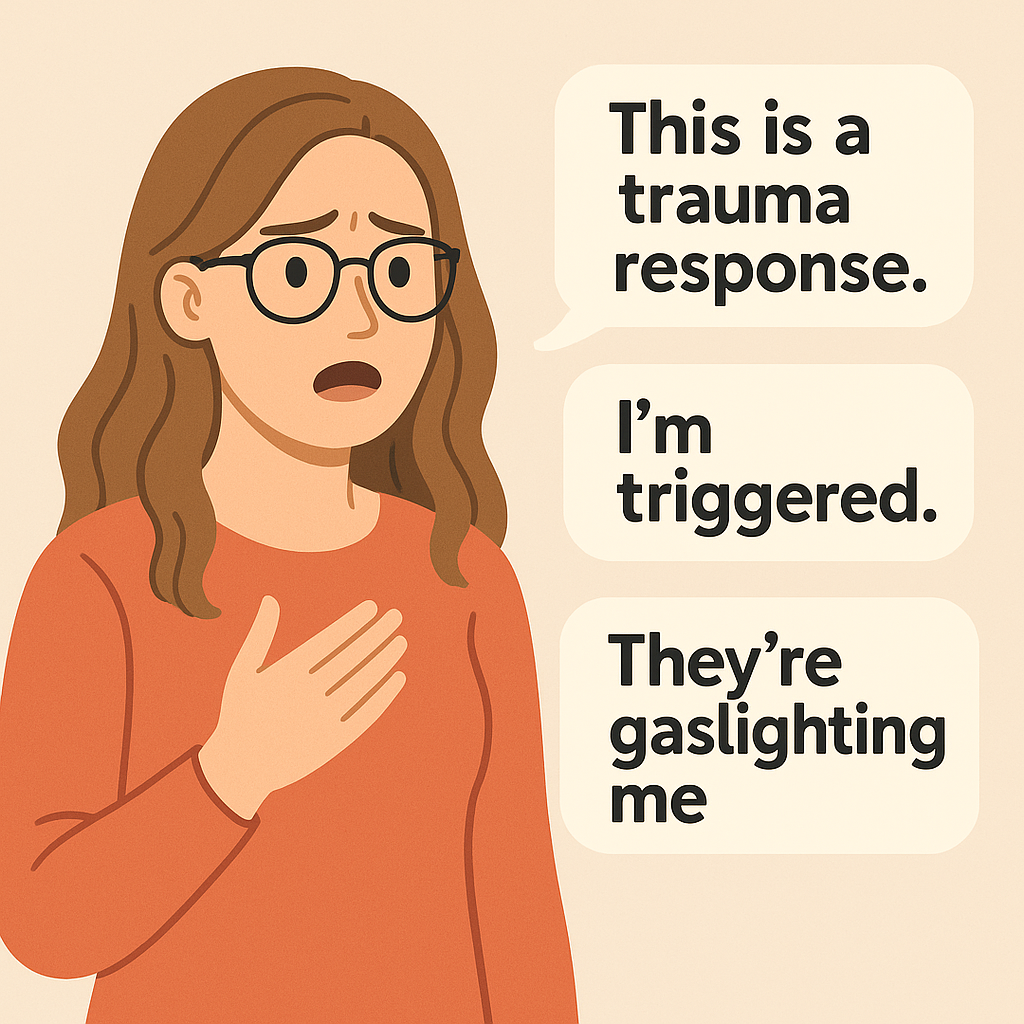Therapy Speak
📍 Introduction: What Is "Therapy Speak"?
“Therapy speak” is the everyday use of language borrowed from psychology, therapy, or mental health diagnosis. Phrases like “I’m setting boundaries,” “I don’t have the emotional capacity,” or “My trauma response is activated” are now common in social media captions, dating profiles, and conflict conversations.
It’s not inherently bad—in fact, therapy speak can empower people to identify emotions, set limits, and advocate for mental wellness. But when overused, misused, or weaponized, it can dilute real clinical language and even make everyday human experience feel like pathology.
✅ The Pros of Therapy Speak
🔹 Destigmatizes mental health
Using words like “anxiety,” “depression,” or “trauma” can normalize experiences and reduce shame.
🔹 Gives language to the wordless
Therapy terms often describe emotional states that people couldn't previously name, such as “emotional labor” or “dysregulation.”
🔹 Can build self-awareness
Terms like “attachment style” or “boundaries” can help people reflect on how they relate to others.
🔹 Fosters validation and community
Sharing experiences like “my ADHD brain today…” can help people feel less alone, especially in marginalized groups.
⚠️ The Cons of Therapy Speak
❌ Pathologizes normal human emotions
Sadness becomes “depression.” Social awkwardness is labeled “autism.” Everyone is “triggered.”
❌ Used to avoid accountability
Instead of saying “I made a mistake,” someone might say, “I was dysregulated.”
❌ Turns diagnoses into identity
Psychiatric terms can shift from being tools for healing to labels that limit growth or excuse behavior.
❌ Overcomplicates communication
Plain truths like “I’m tired” get replaced by jargon like “I’m low on emotional bandwidth.”
🔄 10 Common Therapy Speak Phrases—and What to Say Instead
| Therapy Speak | What It Might Mean | Try Saying This Instead |
|---|---|---|
| “I’m setting a boundary.” | “I’m ending this conversation abruptly.” | “I need to stop here—I’m feeling overwhelmed right now.” |
| “I don’t have the capacity for this.” | “I’m tired or stressed and don’t want to talk.” | “I want to be here for you, but I’m burned out today.” |
| “This is a trauma response.” | “I’m reacting strongly, and I don’t know why.” | “That really hit a nerve, and I want to unpack why.” |
| “You’re violating my boundaries.” | “I’m uncomfortable with what just happened.” | “That crossed a line for me. Can we talk about it?” |
| “That person is toxic.” | “I don’t like how that person treats me.” | “I feel drained after being around them, and I need space.” |
| “I’m triggered.” | “I’m feeling really upset or activated.” | “I’m having a strong reaction and need a moment.” |
| “You need to do the work.” | “You’re not doing what I think is healing.” | “I wish you’d reflect more on your part in this.” |
| “They’re gaslighting me.” | “They’re disagreeing with my version of events.” | “I feel dismissed when my perspective is questioned.” |
| “I’m being emotionally manipulated.” | “I feel pressured and confused in this relationship.” | “I’m noticing patterns that feel controlling to me.” |
| “I’m healing right now.” | “I don’t want to talk about it or take responsibility yet.” | “I’m working through some stuff and may not respond well today.” |
🧭 Final Thoughts: When Language Helps vs. When It Hides
Therapy speak becomes harmful when it stops being a tool for growth and starts being a shield from it. Not all pain is pathology. Not every emotion needs a diagnosis to be valid.
🧠 Good mental health is built on honesty, clarity, and connection—not just labels.
🔄 Try This Exercise
Write a real message or response where you’ve used therapy speak recently. Then rewrite it using clear, kind, human language. See how it changes the tone and potential outcome.







